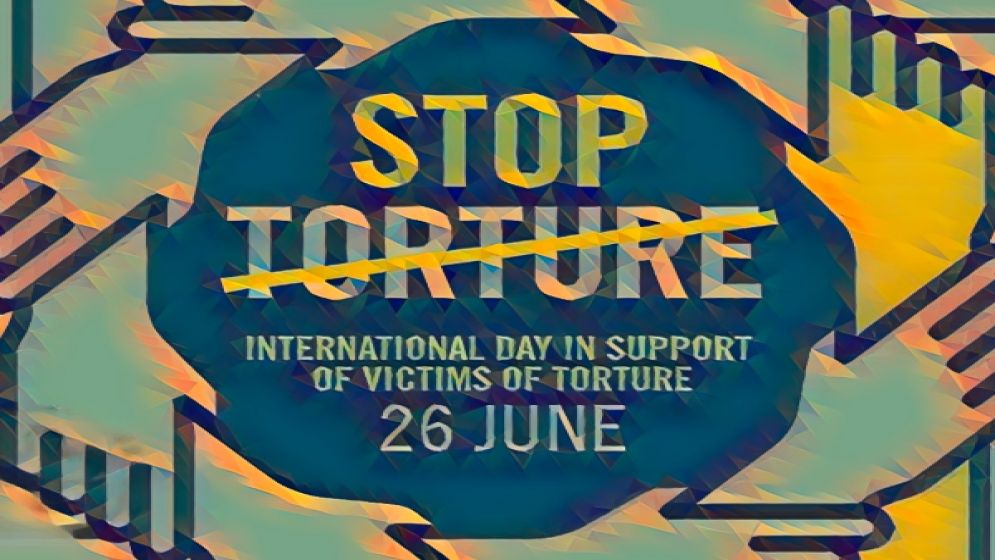International human rights organizations calls on Bangladesh to fulfill its commitment to end torture and ill-treatment

A number of global human rights organizations have expressed grave concerns over the persistent use of torture and ill-treatment by law enforcement agencies in Bangladesh.
On the occasion of United Nation’s “International Day in Support of Victims of Torture”–which will be observed today (June 26)–these organizations highlighted the lack of comprehensive rehabilitation services for victims and called for authorities to take immediate action.
A diverse coalition of human rights organizations, including Amnesty International, Asia Alliance Against Torture (A3T), Anti-Death Penalty Asia Network (ADPAN), Asian Federation Against Involuntary Disappearances (AFAD), Asian Forum for Human Rights and Development (FORUM-ASIA), Capital Punishment Justice Project (CPJP), CIVICUS: World Alliance for Citizen Participation, Eleos Justice at Monash University, International Federation for Human Rights (FIDH), Odhikar, Robert F. Kennedy Human Rights, and World Organisation Against Torture (OMCT), have united to raise concerns over torture in Bangladesh and advocate for victims' rights.
Under the theme "Freedom from torture is our right," these organizations stand in solidarity with victims, their families, and human rights defenders. They call for an end to torture, accountability for perpetrators, and access to justice for those affected.
The joint statement issued by them say, torture is widely used by police to extract confessions and has also been employed for political purposes against government critics and opponents. The practice can escalate to enforced disappearances, further traumatizing victims and their families.
The organizations urge the Bangladeshi government to uphold its commitments under international law and ensure that all individuals are protected from torture and ill-treatment.
Violating laws and international norms
Torture and ill-treatment by law enforcement and security forces are strictly prohibited under both international law and the Constitution of Bangladesh.
This absolute ban, enshrined in human rights treaties like the International Covenant on Civil and Political Rights (ICCPR) and the UN Convention against Torture (UNCAT), allows for no exceptions or justifications.
As a non-derogable right, freedom from torture cannot be suspended even in times of national emergency.Such acts also violate Articles 31, 32, and 35(5) of the Bangladeshi Constitution, further underscoring the gravity of these offenses, says the joint statement of the undersigned organizations.
The joint media statement says, leading up to the last general elections on 7 January 2024, thousands of opposition party members were detained, with many reportedly subjected to torture while in custody.
Allegations of torture and mistreatment of political prisoners extend beyond police stations to jails nationwide. In 2023 alone, Odhikar documented 128 deaths in jail custody, while between January 2023 and March 2024, at least 13 BNP leaders and activists reportedly died in prisons due to alleged torture.
Recently, Afroza Begum died in police custody shortly after being taken from her home in Jashore. Her family claimed she was falsely implicated in a drug case and tortured for money. Fearing police reprisals amid constant surveillance and intimidation, the family relocated to a relative's residence.
Despite Bangladesh's Torture and Custodial Death (Prohibition) Act 2013, allegations of torture and custodial deaths rarely lead to investigations or prosecutions. This is largely due to threats and pressure on victims' families, preventing them from filing complaints.
Odhikar has documented at least 103 custodial torture deaths between November 2013 and March 2024. In the last 10 years, 50 cases were filed, yet only one resulted in a conviction under the Act, highlighting its poor implementation and widespread impunity.
Moreover, some torture victims face retaliatory charges. Shahjalal, whose eyes were allegedly gouged out by the police in 2017, is one such example. His family has been pressured to drop their case and was recently coerced into a "settlement" with the police.
Culture of impunity
Despite widespread condemnation of law enforcement's actions, Bangladeshi authorities have fostered a culture of torture by awarding officers involved in the abuse of dissidents and political opponents with prestigious medals like the "Bangladesh Police Medal" and the "President's Police Medal."
Furthermore, Bangladesh has consistently disregarded requests from the United Nations Committee Against Torture to implement recommendations made during its 2019 review.
These recommendations include establishing independent monitoring of detention centers and investigating allegations of torture.
Additionally, the government has repeatedly declined to ratify the Optional Protocol to the Convention Against Torture, further demonstrating its reluctance to address the issue.
As a signatory to the UN Convention Against Torture and the International Covenant on Civil and Political Rights,Bangladesh has a legal obligation to prohibit and prevent torture, hold perpetrators accountable, and provide reparations to victims.
By failing to uphold these obligations, the government continues to perpetuate a system of impunity and disregard for human rights, says the joint media statement.
—

